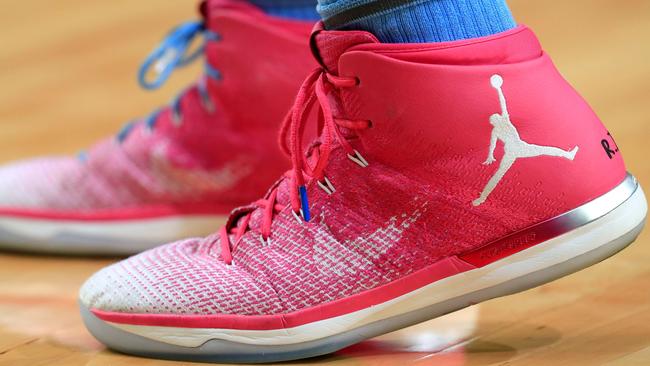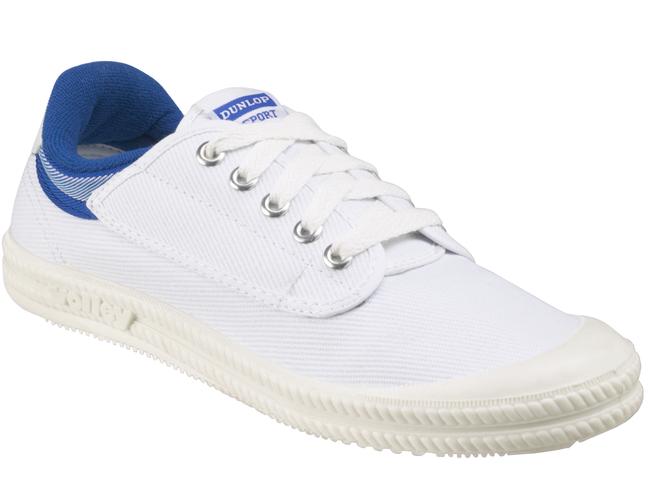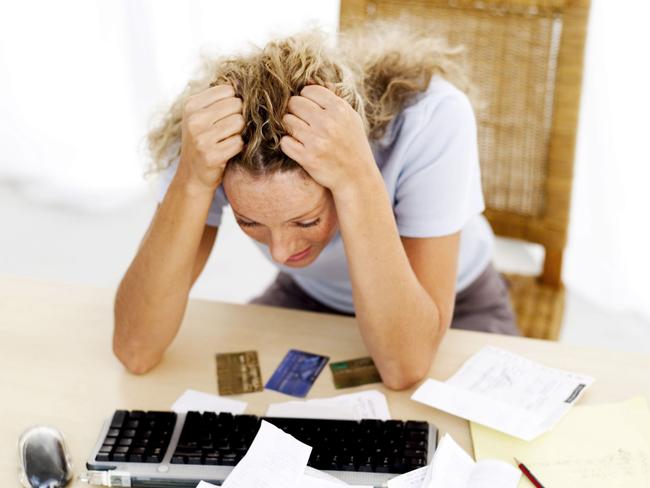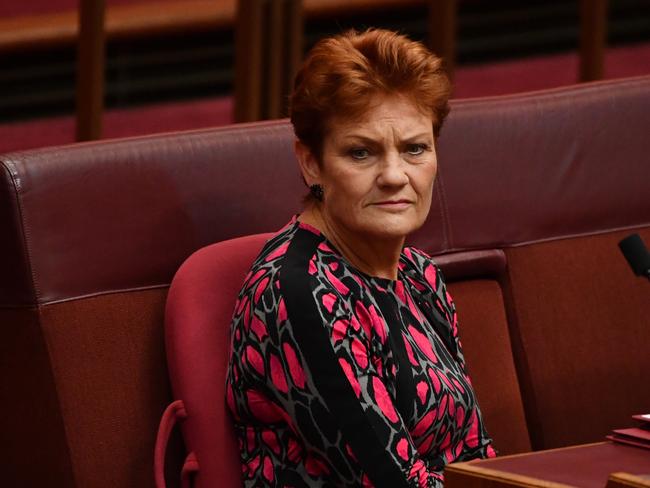Scott Pape on who should open a first home super saver
FIRST home buyers will soon be able to divert extra money into their super and then draw it out to buy a house. Is this a good thing? Barefoot Investor investigates.

Barefoot Investor
Don't miss out on the headlines from Barefoot Investor. Followed categories will be added to My News.
WHEN I was a kid, all I wanted for my birthday was a pair of Air Jordans.
Mum and Dad got my hopes up. Then on the big day, they presented me with … a pair of Dunlop Volleys.
“They’re great sandshoes”, said Dad. “You know, Newk used to play in these. A phenomenal sportsman.”
Uh-huh.
I felt the same way last Tuesday, on Budget night.
See, in the lead-up to Tuesday, the Government had been leaking like Clive Palmer, dropping hints that the centrepiece of the Budget would be a plan to tackle housing affordability — once and for all!
What we got was the legislative equivalent of Dunlop Volleys (before hipsters made them cool): A feeble attempt to get some oldies to downsize, and an air kiss to negative gearing and capital gains tax reform; and … the First Home Saver Account 2.0* (*now with less K-Rudd!). In fact, the name is eerily similar — the ‘First Home Super Saver Scheme’.

“I was right!” I yelled at ScoMo (who was ... talking on the telly).
My wife sat there, arms folded, rolling her eyes.
“I predicted months ago in my column that the Government would only let people withdraw their voluntary super contributions to put towards a deposit,” I said, punching the air triumphantly.
“You are turning me on so much right now … my husband, the tax whisperer”, she said (mockingly).
BAREFOOT INVESTOR: WHY GIFTING FIRST-HOME BUYERS CASH IS BAD
Harsh … but fair. It’s not like I’d just answered the million-dollar question on Hot Seat.
Yet given that I’ve always been a fan of first homebuyers saving up to buy a home, let’s take a look at what’s on offer. Today I’m going to tell you exactly what you should do with the brand-new First Home Super Saver Scheme.
Specifically, who should open one … and who shouldn’t.
HOW TO GET INTO YOUR HOME 30 PER CENT QUICKER
AT least, that’s the line ScoMo used on Budget night.
So let’s see how it works.
From July 1, you’ll be able to ask your boss to divert extra money into your super fund to save for a deposit, and then draw it out to buy your first home (the earliest time you could withdraw it is July 1, 2019).
The maximum you can save is a piddly $30,000 per person (so a couple can save $60,000).
Why would you do that? Because you’ll pay less tax … and the less tax you pay, the more money you’ll have to put towards your deposit.
Let’s take the case of Mandy. She earns $65,000 a year as a professional wrestler, and she’s saving a deposit for her very own wrestling ring.
At her top rate, Mandy pays out 32.5c in the dollar in tax, plus the Medicare levy. So she could earn $10,000 and be left with just $6550.
Yet if she salary-sacrificed the same $10,000 into her super fund (with a 15 per cent flat tax rate), she’d be left with $8500.
Even better, the interest she earns on that money in super would also be taxed at the same rate — another tick for her super fund.
No-brainer, right?

OK, so that’s quite simple.
But the cardigans in Canberra love complexity, so let’s go deeper.
Game on!
First, Mandy is limited to putting in a maximum of $25,000 into super per year pre-tax, and that includes her employer contributions. (And if you’re self-employed, or your employer doesn’t offer salary sacrifice, you can still claim a tax deduction on your personal contributions.)
Second, how much interest does she earn?
Well, that’s the thing.
The money isn’t paid into a separate account; it all goes into the one super pot (deposit savings and long-term savings together).
The ATO doesn’t want to calculate the interest Mandy will earn on her deposit savings, so they cheat and use a formula for guessing (they call it ‘deeming’).
Currently, it’s set at 3 per cent plus the current bank bill rate, making a total of 4.78 per cent.
Again, that’s not how much she’ll actually earn on her deposit savings, just what they deem she’ll earn.
If the market crashes, her super balance will take a significant hit — but the ATO will still deem that her deposit savings increased by 4.78 per cent, and she’ll be allowed to take it all out.
Trouble is, it hasn’t actually increased, and what she’s taking out is dipping into her long-term super savings — not good.

Now I’m not saying this will happen, but it’s possible.
Finally, she’ll be hit with an exit tax (set at 30 per cent below her marginal rate) when she takes her deposit savings out of her super.
Seriously, can you imagine Pauline Hanson trying to work this out?
Please explain?

If your eyes glazed over for the last few lines, that’s OK. Here’s the guts of it:
After three years of saving using the First Home Super Saver Scheme, Mandy will have $25,833 available for a deposit, or $6314 more than if she’d saved via a standard bank account.
So how does this all apply to you? Well, it depends.
WHO SHOULD OPEN A FIRST HOME SUPER SAVER?
IF you’re planning on buying a home in the next few years, and you already have a decent deposit saved up, you’d have rocks in your head if you didn’t open one up.
That’s because it’s worth $12,628 extra to an average earning couple (based on Mandy shacking up with the Hulk), compared with saving in a basic bank account.
Sure, that’ll buy you the equivalent of half a dunny in a capital city, but it’s twelve bloody grand for filling out a few forms! I’d bend down and pick up twelve grand if I saw it on the footpath. Wouldn’t you?
WHO SHOULD NOT OPEN A FIRST HOME SUPER SAVER?
ANYONE with a longer timeframe — who isn’t planning on buying for up to five years. Parents, grandparents — don’t open one up for young kids. Conscientious kids, that goes for you too.
Huh? Isn’t the Barefoot Investor all about the long term?
Sure, but there’s one more risk with this scheme that I haven’t mentioned yet — and it’s a doozy. What happens if you meet and settle down with a good-looking young rooster (or hen) who just happens to own their own home already?
Under the current rules, the money you’ve saved up can only be used as a deposit for your first home.
So, because your partner has already bought a home, you’ll be forced to keep that money locked up inside your super and won’t be able to access it until you’re in sandals and socks.
Or Air Jordans.
Tread Your Own Path!
Read more Barefoot:
How garden guru Peter Cundall achieves real wealth
Revenge is coming for first home buyers
No drama that can't be sorted, not even a bankruptcy
Originally published as Scott Pape on who should open a first home super saver


